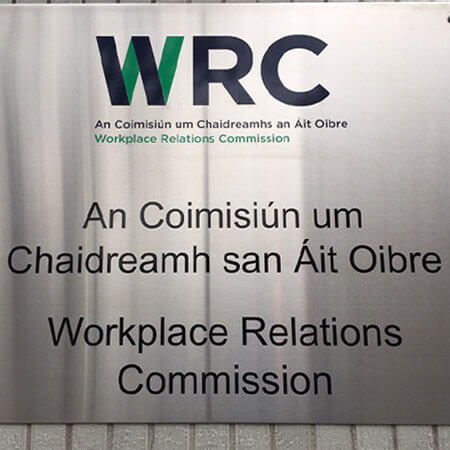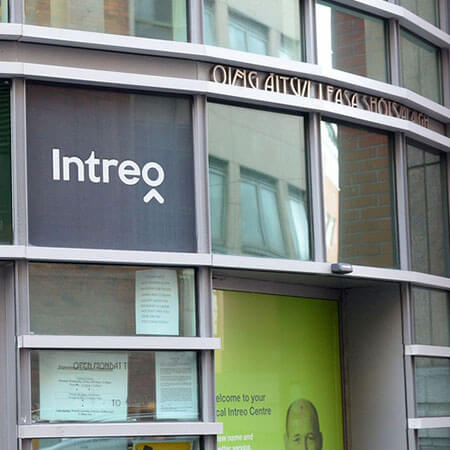What’s the average salary in Ireland?
Figures from Eurostat show that salaries in Ireland are above the European average. Although the cost of living in Dublin can be high too, average weekly earnings are consistently on the rise. At the end of 2023, official figures indicated that the average weekly wage in Ireland stood at €921. By comparison, those earning Ireland’s minimum wage can expect to earn around €500 a week working full-time.
A lot of different factors will dictate exactly what you can earn while working in Dublin. But most of them come down to things like industry, skills, qualifications and experience.
Irish salaries sector by sector
Different sectors of the economy pay different wages. Each year, IrishJobs.ie commissions a series of surveys to monitor salaries in Ireland generally, as well as specific wages in the Dublin region. Their most recent findings cover sectors like healthcare, tech, financial services and pharma. Here’s the breakdown.
More goods are being moved around Ireland than ever before. Customers expect speedy delivery and just-in-time manufacturing has become widespread. The upshot is that the supply chain and logistics functions of many businesses are more important than ever. Inventory controllers will earn a minimum of €32,000 annually, while supply chain directors can see salaries of up to €180,000.
With so many big tech companies in Dublin, the demand for skilled IT and cyber security specialists is high. Salaries in Dublin start at €30,000 for helpdesk support roles and hit up to €150,000 for programme directors.
Many businesses in Dublin are growing and expanding, so accountancy is too. Annual salaries range from €25,000-€28,000 for accounting graduates, through to €185,000 for Financial Director/CFO.
Banking is one of Dublin’s most lucrative sectors, so it’s no surprise that financial analysts and traders are doing well. Graduates working in a range of banking functions from investment banking to risk analysis start on salaries between €28,000-€34,000. These wages rise swiftly with experience and CFO salaries in Dublin can rise to €180,000.

Sectors like agriculture, food, precision manufacturing and data centres are all looking for engineering expertise. Maintenance technicians can start on €40,000-€50,000 per year. But salaries in Dublin can hit up to €145,000 for a General Manager.
As more advertising moves online, digital marketers are in high demand. Annual salaries begin at €30,000 for social media executives, rising to €75,000 for digital marketing managers. General marketing positions start at €30,000 but salaries can rise up to €150,000 for senior marketing directors.
Most healthcare professionals are receiving modest pay rises after deep cuts to their remuneration throughout the recession. Today, staff nurses can start on a salary of €26,000 per year. Senior nurses will receive just under €50,000 and clinical psychologists can receive up to €86,000 per year.
Dublin’s science and pharmaceutical sectors are enjoying healthy growth. Graduate chemists and chemical engineers can start out on €35,000, while quality directors can expect salaries of up to €130,000.
Dublin’s emphasis on attracting large tech companies and fostering a dense ecosystem of startups means that IT professionals are in strong demand. Helpdesk Level 1 can start on a salary of €32,000, while an IT director or Chief Information Security Officer can expect to take home a pay packet of up to €147,000.

Nothing is more important to a business than its people, which is why HR professionals are always in demand. Graduates begin with annual salaries of around €25,000, while HR directors can earn up to €153,000.
Figures suggest salaries in Dublin start at €22,000 for trainee managers, while area managers can expect to earn up to €110,000.
The digital economy may be coming on in leaps and bounds, but many people still like to interact with someone before making a purchase. Many sales executives, including field reps and telesales reps, can expect a starter salary of €26,000-€30,000, while senior sales directors can earn up to €160,000 annually.
Salaries of around €30,000 are about standard for junior safety officers, quantity surveyors, planning engineers and estimators. But as they gain experience, they’ll see a big increase in pay. For example, senior quantity surveyors can earn up to €90,000 annually. Construction salaries in Dublin max out at €130,000 a year for directors.
For more information on job opportunities in Ireland, check out our article on Dublin’s most in-demand skills. You may also find this piece on the recognition of foreign qualifications in Ireland useful.





